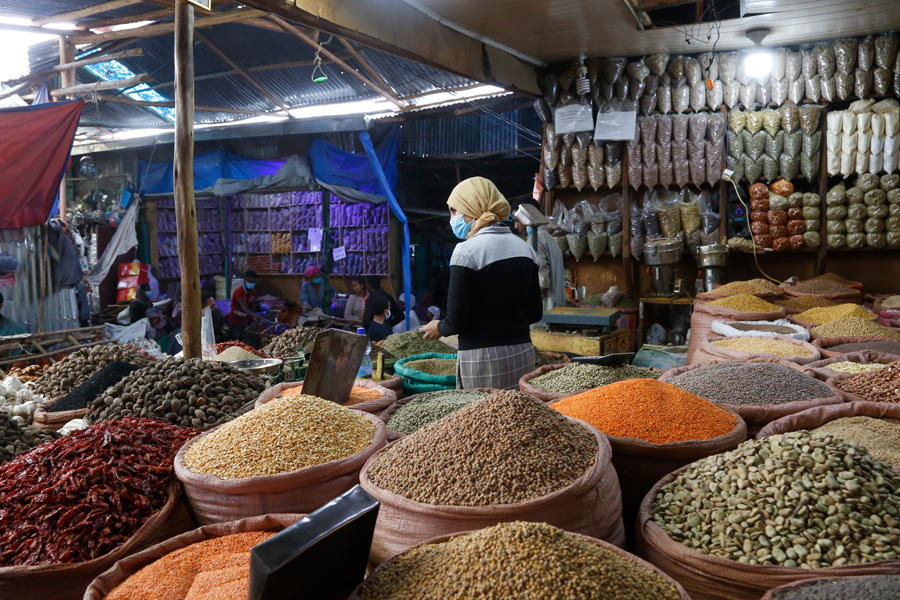
It was as though two people inside me were arguing with each other as I was heading to attend the monthly debates on the arts at the historic Hager Fikir Theatre. It was a Monday afternoon with an unusually bright sun and blue sky for the rainy days. As I was passing by the square in Piassa dedicated to late French President Charles De Gaulle, what he said while ordering pardon for Jean-Paul Sartre cliqued my ears: “You don't arrest Voltaire.” It was a preparation for the type of event I would attend.
I was contemplating whether to go, given that the discussion was about whether enough has been done to unravel the murky, mysterious and infuriating disappearance of Be’alu Girma, author of "Oromay," four decades since, and whether art is the appropriate field to be so involved. It was hardly surprising that it turned out to be more about the man touted as unparalleled for breaking new ground in Amharic fiction writing. It ended with a fallout with a regime for allegedly misusing access to the unfolding of political events and portraying many important officials as caricatures.
It is true that we are tired of never-ending, merry-go-round conspiracy theories. It even left me undecided for a while, not sure what good comes out from the story of another spinmeister. No doubt, the search for the guilty party needs to be encouraged at all costs, yet objectivity need not be compromised, thus avoiding naming for the sake of naming, given the highly repressive and secretive environment that prevailed at the time.
But it was worth attending such gatherings to memorialise a man whose fate went unsolved and thus accord him with a living display of orations of praise for his achievement. As I approached the meeting hall, I reminiscence about Bertolt Brecht, who used to be amazed by our, as human beings, insensitivity to all that war brought to humanity. His scathing tirade has always been unheeded. All the whys about the sensitivity of the anti-war issue that reportedly forced Brecht to change countries in his time makes us ask why Be’alu did not consider such a move.
It also brought a distant memory from my early years attending Tsegaye Gebremedhin’s adaptation of “Mother Courage” as “Enat Alem Tenu,” pondering how astray it went from its central theme, almost to the point of having nothing to do with it. What if it was not so? Would the bad luck to follow Be’alu Girma’s fate also befall him?
As I struggled not to fret out with the insufficiency of works so far done, unearthing what exactly happened to this great journalist and writer, I was somehow reassured by the opening remark. It was a sympathetic, engaging and beautifully observed account of the author’s life. Be’alu would have been proud.
Apart from the continuing debates in the artistic sphere, there is an upcoming play to reminisce over the author’s life. It is further hoped to amplify the appeal for this most recondite national issue. Such endeavours enable an amazing breakthrough and ensure against the hurly-burly of hysteria. Knowing about the lives of authors breathes fresh air to advance our literature and promote Bealu’s anti-war stance.
It became clear by the end of the debate that the endeavour had not had the success it deserved. A variety of ideas about the state of the arts were articulated through scholarly thoroughness. Finally, the debate ended, signifying Be’alu’s continued relevance by evoking a melancholic mood in complex sociopolitical circumstances and times. So much is yet to be done unearthing one of the country’s most imaginative and bold authors. The hard work continues.
PUBLISHED ON
Aug 13,2022 [ VOL
23 , NO
1163]


Radar | Jul 20,2025

Agenda | Sep 08,2024

Radar | Dec 07,2019

Radar | Oct 31,2020

Fortune News | Sep 22,2024

Radar | Aug 13,2022

Sponsored Contents | Aug 22,2022

Radar | Nov 16,2024

Agenda | Jul 28,2024

Fortune News | May 31,2025

Dec 22 , 2024 . By TIZITA SHEWAFERAW
Charged with transforming colossal state-owned enterprises into modern and competitiv...

Aug 18 , 2024 . By AKSAH ITALO
Although predictable Yonas Zerihun's job in the ride-hailing service is not immune to...

Jul 28 , 2024 . By TIZITA SHEWAFERAW
Unhabitual, perhaps too many, Samuel Gebreyohannes, 38, used to occasionally enjoy a couple of beers at breakfast. However, he recently swit...

Jul 13 , 2024 . By AKSAH ITALO
Investors who rely on tractors, trucks, and field vehicles for commuting, transporting commodities, and f...

Oct 11 , 2025
Ladislas Farago, a roving Associated Press (AP) correspondent, arrived in Ethiopia in...

Oct 4 , 2025
Eyob Tekalegn (PhD) had been in the Governor's chair for only weeks when, on Septembe...

Sep 27 , 2025
Four years into an experiment with “shock therapy” in education, the national moo...

Sep 20 , 2025
Getachew Reda's return to the national stage was always going to stir attention. Once...